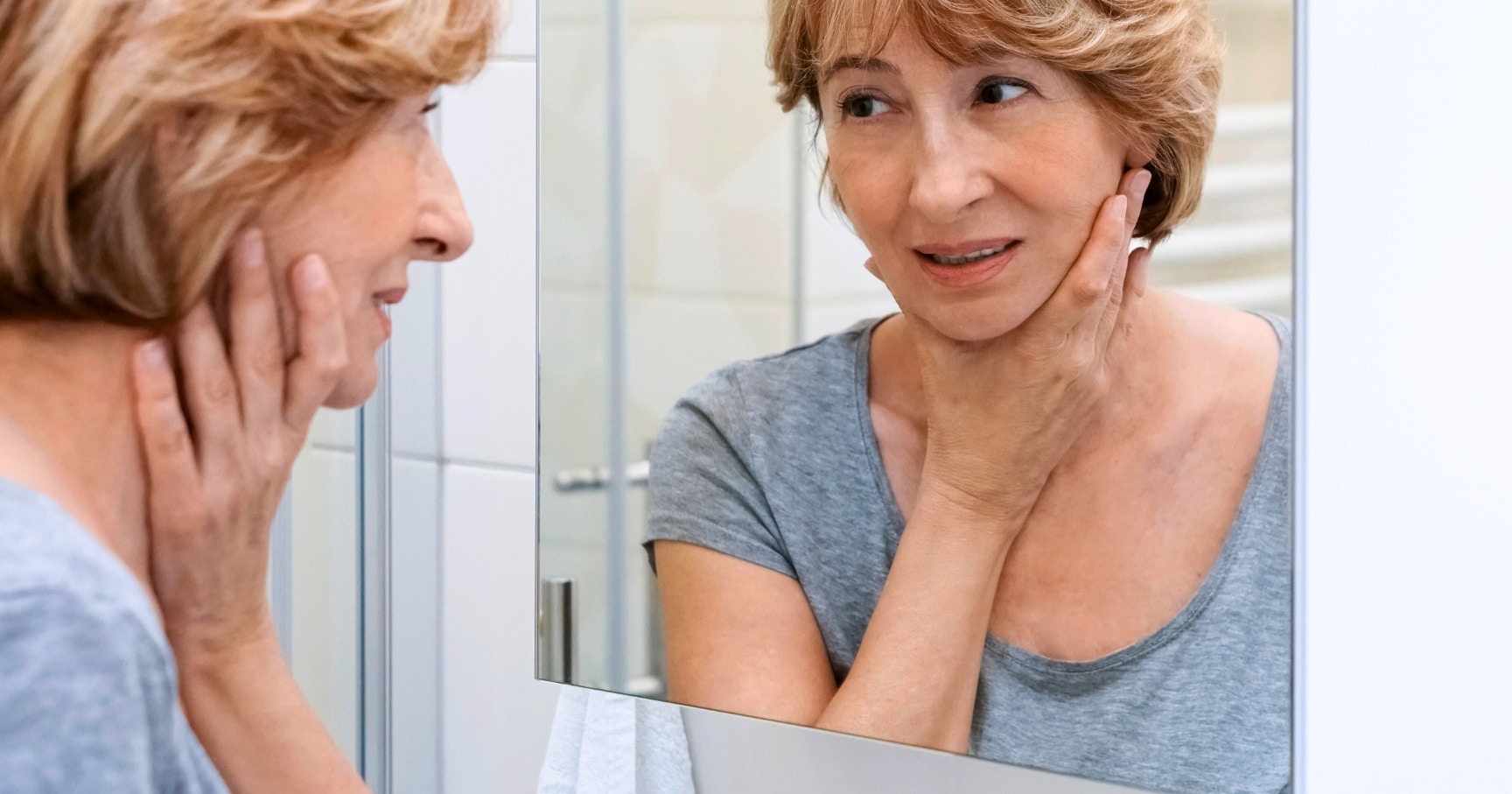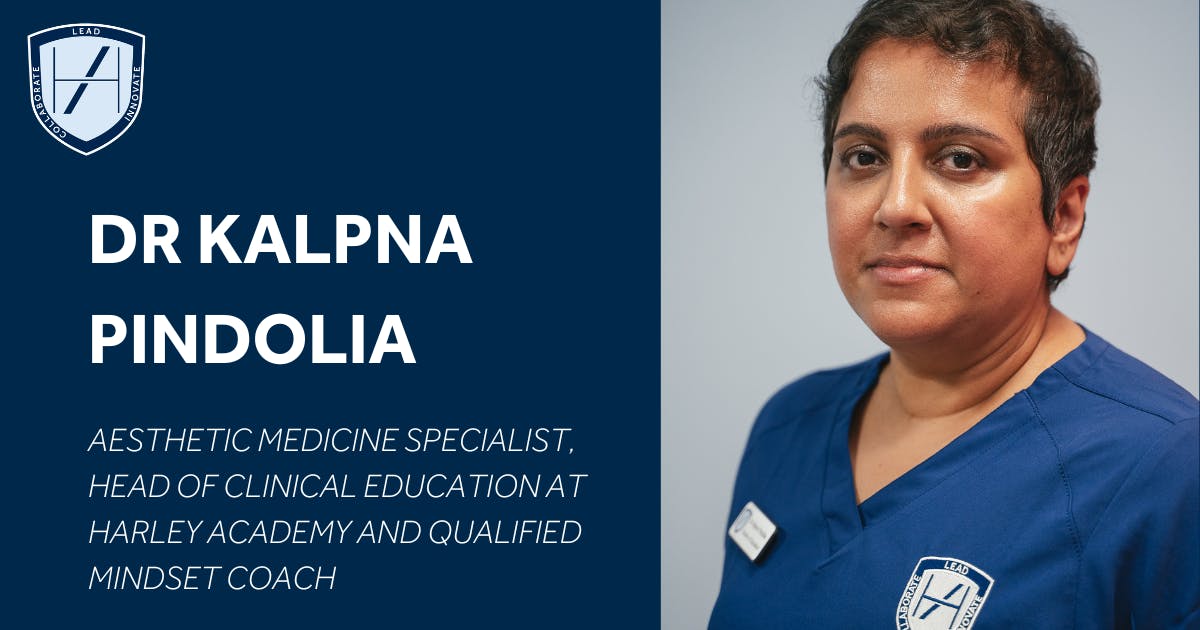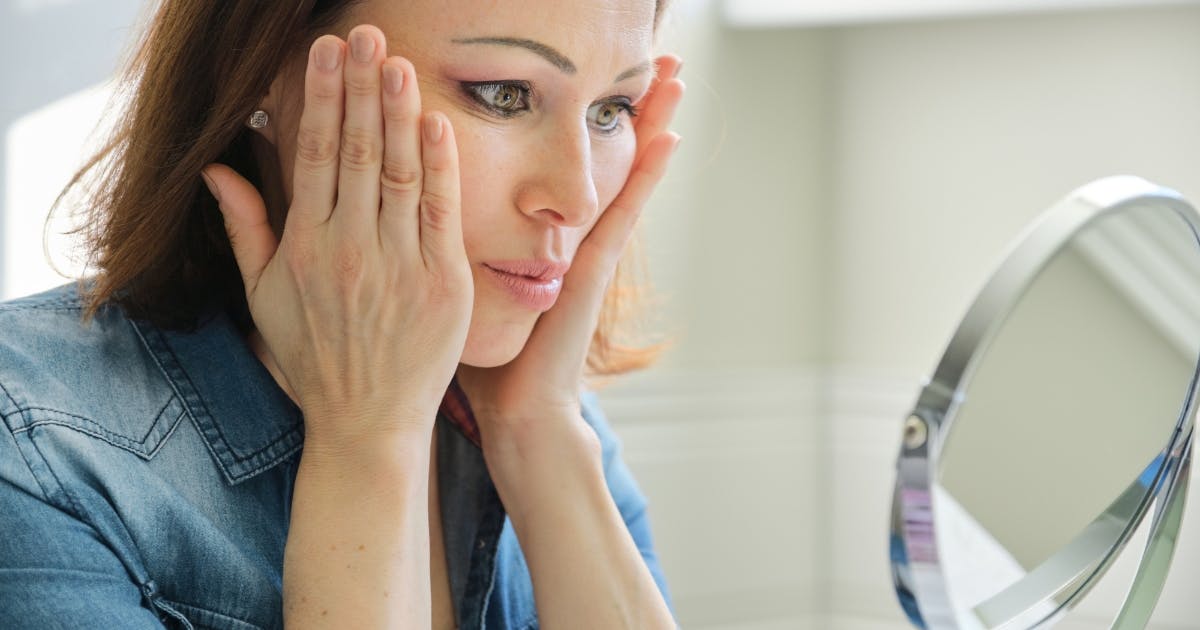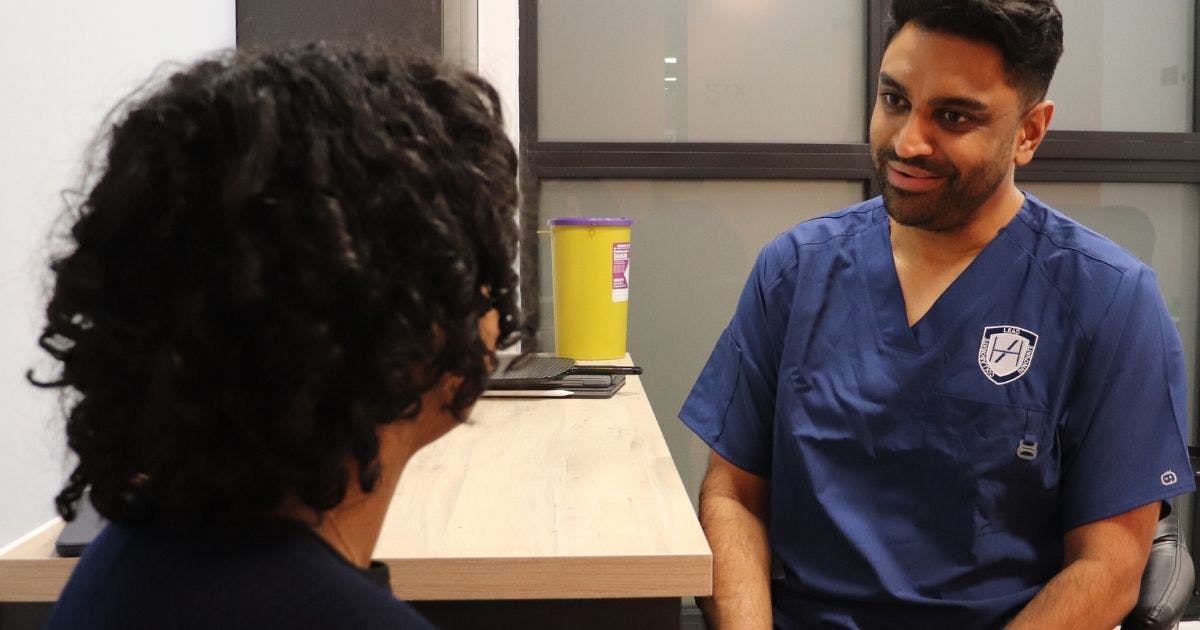Psychological Self-Care for the Aesthetic Practitioner

Psychological self-care for the aesthetic practitioner is an aspect of cosmetic medicine that’s not often openly discussed.
When your job involves scrutinising others’ appearance, how does it make you feel about your own?
Appearance psychology is a topic close to our hearts here at Harley Academy. We are part of ongoing research projects with our partners, the Centre for Appearance Research at the University of the West of England in Bristol.
Furthermore, this is a particular area of interest for Dr Kalpna Pindolia. Harley Academy’s Director of Clinical Education and aesthetic medicine expert is a qualified mindset coach. She has a wealth of useful insights and tools to help cosmetic injectors thrive.
We spoke to her to discuss some common psychological struggles among aesthetic practitioners and how to overcome them.

Self-doubt and dysmorphic tendencies
“As facial injectors, we hold the responsibility of enhancing our patients’ aesthetic and building their self-confidence. But do we consider how our work affects our own facial image?” asks Dr Kal.
After their initial botox and filler course, many trainees go home and straight to the mirror! She goes on to say “While working with faces on a daily basis, we’ll naturally evaluate our own faces. This can increase our vulnerability, exacerbate self-doubt and trigger dysmorphic tendencies.”
Research into BDD among aesthetics practitioners
As Dr Kal notes, aesthetic practitioners are particularly vulnerable to anxieties regarding their own appearance.
There may be a propensity towards:
- Depression
- Anxiety
- Negative body image
- Eating disorders
- Body Dysmorphic Disorder (BDD).
BDD is a mental health condition characterised by an obsessive preoccupation with perceived physical flaws. This can lead to excessive grooming, plus seeking multiple and/or unsuitable cosmetic procedures. Often, it’s associated with high treatment dissatisfaction rates. It can also cause intense anxiety and distress when treatments fail to meet high, likely unrealistic expectations.
These issues can be brought on or exacerbated by feeling the constant pressure to maintain a certain appearance.
Appearance psychology research has shown that people with greater aesthetic sensibilities are more likely to develop BDD. It’s pretty safe to say that cosmetic injectors fall into this category. This may be why injectors reportedly have a slightly higher risk of developing BDD.
A small 2017 study surveyed 51 aesthetics practitioners about their appearance. The findings were published in the Aesthetic Medicine journal’s November 2017 issue. Lead authors, Dr Stephen Harris and Dr Neetu Johnson wrote that “the results of this survey found that the prevalence rate of BDD among practitioners is higher than that found among aesthetic patients (16% versus 9-15%).”
The findings showed that BDD was most common among aesthetic nurses at 50%, followed by aesthetic doctors at 16%. It was least likely among dental professionals practising aesthetics.
“Remember, this is based on 51 responses in total,” stresses Dr Kal. “Much larger studies are needed to determine how representative these figures truly are. What it intuitively does indicate, however, is that, as cosmetic practitioners, we need to be proactive in our approach to psychological self-care.”

Psychological self-care tools for aesthetics practitioners
Here Dr Kal highlights some aspects to consider to help navigate some of these challenges.
Broaden your appreciation of different beauty standards
“Your evolving understanding of holistic beauty and facial aesthetics is key to understanding drivers for treatment.
“Caucasian Western beauty ideals remain at the forefront of the aesthetics industry. However, these traditional standards, which prize youthful, ratio-based beauty, can be exclusionary and somewhat outdated.
“The more you study faces of different ages, ethnicities and genders, the broader your acceptance of different beauty standards will be. This will also help to grow your facial assessment and treatment planning skills as an injector.
“It’s important to develop an awareness of your own bias in terms of the aesthetic ideal, too. This is so you can appreciate patient drivers during consultation. You need to be able to separate these from your own artistic notions of what would constitute a pleasing outcome.
“You’ll start to appreciate the balance of symmetry, balance and harmony of a face as you develop your craft. From there, you’ll learn to value the beauty of perceived flaws. This will allow you to develop a magnified recognition of the strengths of the facial aesthetic. In doing so, you’ll be able to shift your mindset to:
- Celebrate the uniqueness of an individual facial canvas
- Respect ageing features as symbols of strength and character despite being drivers for treatment.
“This journey can help you to appreciate your patient's facial beauty as well as your own,” concludes Dr Kal.
Have realistic expectations of yourself and your appearance
“There can be potential perceived pressure to maintain a flawless aesthetic as an injector.
“However, having realistic expectations from treatment applies to you - not just your patients.
“Some may suggest that having treatments means you can understand the patient’s perspective. But this should not translate into pressure to have treatments. Also of note, your face is certainly not a reflection of your professional competence. Neither is it a marker of your skill as an injector as you should not be injecting your own face.
Would you expect a heart surgeon to have undergone heart surgery before you’d trust them to operate on you? Try not to project misconceptions regarding what you think people may be thinking onto yourself. As the saying goes ‘don’t believe everything you think’!
“Having treatments yourself is a personal decision,” reinforces Dr Kal. “This should be taken from a place of understanding the benefits and risks, with the exclusion of any pressure.
“Remember, there is also merit in having a somewhat ‘normal’ facial aesthetic that allows you to maintain a sense of approachability and empathy with some of your patients.”
Be your own advocate
“Avoid measuring your appearance against societal, colleagues’ or even your patients’ ideals,” advises Dr Kal.
“Remind yourself that the belief of appearance being a crucial quality is easy to exaggerate. This is especially true in this business as we have so much exposure to it. It’s not the essence of human existence, though!
“Treat yourself with the same care, empathy and attention that you give your patients. Self-compassion is key, as well as avoiding harmful self-criticism. Focus on what is great about your face to become more neutral in your judgement,” she recommends.
“You may also engage in activities that foster a better face image, such as practising gratitude, mindfulness and affirmations. Be sure to designate off-duty time to disconnect from aesthetic work; this will also help to replenish your spirit.”

Hone the consultation aspect of your craft
Dr Kal encourages all aesthetics practitioners to convey the following themes during the clinical consultation.
- The importance of realistic expectations
- Encouraging self-acceptance and acknowledging the positive traits of a face
- Holistic well-being
“This can really empower your patient experience,” she explains. “You can encourage embracing the ageing process in a positive, or at least neutral manner through dialogue.
“Open questions encourage a broader perspective when a patient comes to you with a list of concerns.” She suggests you try asking, for example, what do you like about your face?
Dr Kal adds, “When a patient discusses a negative train of thought, it’s useful to challenge their language. For instance, if they describe ‘hating’ a feature, ask if they’ve considered using the term ‘dislike’. This de-escalation can reduce the power of the term in their mindset.
“Honouring the complexity of ageing and your own evolution also respects the relationship between physical appearance and well-being. Embracing your own authenticity plus managing ageing and approaching patients with empathy, embeds these messages into your own internal dialogue.”
Seek support from the aesthetic medicine community
Whatever you’re feeling about your self-image and mental health, you won’t be alone.
Historically, there’s been a reluctance to discuss these types of issues within the aesthetics industry. However, we’ve noticed increasing importance being placed on appearance psychology as more of us lean into this vital aspect of practice.
Dr Kal counsels, “Normalising discussions around psychological well-being within the aesthetic injector community can be challenging.
“It’s useful to establish a personal support network of colleagues who understand the nuances of your profession. This allows you all to provide empathic, truthful guidance and support to each other.
“An external perspective from a trusted colleague will allow you to appreciate the attractiveness of your face. They can honestly advise for or against treatments in a kind, open and balanced fashion.”
You can build your community via peers you meet during your aesthetics training courses and at events. Cosmetic practitioners are generally quite happy to strike up conversations so don’t be afraid to get chatting!
If you don’t find it easy to approach others in person, you may wish to consider online networking platforms, such as Comma. This can also expand your reach.
Educate yourself about psychological aspects of aesthetic practice
“We often focus on completing continuing professional development for the technical aspects of our work. It’s equally important to stay informed about the psychological aspects,” reminds Dr Kal. “This includes issues such as body dysmorphic disorder and its manifestations.
“Recognising warning signs in yourself and others and proactively seeking professional help is crucial for your wellbeing,” she notes. “It’ll also help you to support others, reinforcing your reputation as an ethical and trustworthy aesthetics practitioner.
“This takes reflective insight as you manage your own journey in facial aesthetics, as well as others’. Such introspection is a key professional and personal quality for aesthetic practitioners.
She concludes, “Ultimately, each face tells a unique story and we must understand that beauty transcends standardised norms.
“As cosmetic injectors, we need to recognise that a face doesn’t need to be ‘perfect’ to be beautiful. This applies to our faces as well!”
Further reading on psychological self-care for aesthetic practitioners
We’ve previously covered other aspects of this topic in our article Aesthetics Practitioners’ Mental Health Management. This includes dealing with compassion fatigue and the importance of scheduling breaks into your day.
All information correct at time of publication
Download our full prospectus
Browse all our injectables, dermal fillers and cosmetic dermatology courses in one document
By submitting this form, you agree to receive marketing about our products, events, promotions and exclusive content. Consent is not a condition of purchase, and no purchase is necessary. Message frequency varies. View our Privacy Policy and Terms & Conditions
Attend our FREE open evening
If you're not sure which course is right for you, let us help
Join us online or in-person at our free open evening to learn more
Our Partners














STAY INFORMED
Sign up to receive industry news, careers advice, special offers and information on Harley Academy courses and services

